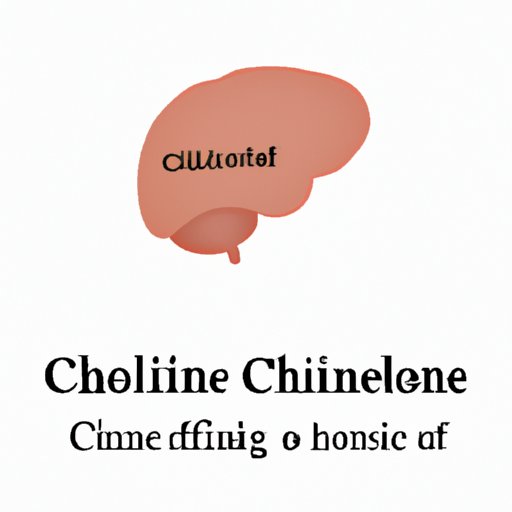
Introduction
If you’re interested in optimal health and wellness, you’ve likely heard of essential nutrients like vitamins and minerals. But have you ever heard of choline? This often-overlooked nutrient plays a crucial role in many bodily functions, from liver health to brain function. In this article, we’ll explore the topic of choline to help you determine whether this essential nutrient should have a place in your daily diet.
Choline: The Essential Nutrient You May Not Know About
Choline is a water-soluble essential nutrient that is important for many aspects of your health. It plays a vital role in the structure and function of cell membranes, as well as in liver function, brain function, and fetal development during pregnancy. Despite its importance, choline was only officially recognized as an essential nutrient by the Institute of Medicine (IOM) in 1998, relatively late compared to other vitamins and minerals.
Choline was first discovered in 1862 by a scientist called Adolph Strecker. However, it wasn’t until the 1930s that its importance for liver function was recognized. In the years since, research has continued to uncover the many critical roles that choline plays in the body.
What is Choline and Why is it Important for Your Health?
Choline is involved in many bodily processes, including liver function, brain function, and fetal development during pregnancy. It is a precursor to acetylcholine, which is a neurotransmitter that plays an important role in cognition, memory, and mood regulation. Choline also helps to transport lipids and cholesterol from the liver to various parts of the body.
In addition to its role in brain and liver function, choline may also have protective effects against certain health conditions such as heart disease and dementia. For example, studies have shown that higher choline intake is associated with a reduced risk of developing dementia, while choline deficiency has been linked to increased inflammation and oxidative stress in the body, which can contribute to the development of chronic diseases.
The Debate Continues: Is Choline Really a Vitamin?
Despite its many important functions in the body, there is some debate among scientists about whether choline should be classified as a vitamin. Vitamins are nutrients that the body cannot produce on its own and must be obtained through the diet. While choline is not produced in large enough quantities by the body to meet its needs, some argue that it is not strictly necessary to consume choline in the diet if other compounds (like phosphatidylcholine) can serve the same function.
On the other hand, there are many good arguments for classifying choline as a vitamin. For one, research has shown that even mildly low choline intakes can have negative effects on the liver, heart, and brain, indicating that the body needs a certain amount of choline to function properly. Additionally, choline is not present in all foods, and certain groups of people (like vegans and vegetarians) may struggle to get enough choline in their diets.
Why Choline Deficiency is Becoming More Common
Despite the importance of choline for overall health, many people are not getting enough of this nutrient in their diets. An estimated 90% of the population does not get enough choline on a daily basis, largely due to a lack of awareness about choline and its role in the body.
In addition, certain groups of people may be at higher risk of choline deficiency than others. For example, vegans and vegetarians may struggle to get enough choline in their diets, as many of the richest food sources are animal-based. Pregnant and breastfeeding women also need higher levels of choline to support fetal and infant development, but many do not consume enough choline in their diets.
Choline deficiency can have a number of negative health effects, including liver disease, cognitive decline, and developmental issues in fetuses and infants. Studies have shown that higher choline intake during pregnancy is associated with improved cognitive function and reduced risk of neural tube defects in infants.
Choline and Brain Health: The Link You Need to Know
One of the most important functions of choline in the body is its role in brain health. Choline is a precursor to acetylcholine, a neurotransmitter that is critical for learning, memory, and mood regulation. Research has shown that choline deficiency can increase the risk of cognitive decline and dementia in older adults.
Furthermore, studies have suggested that choline may have protective effects against certain neurological disorders, including Alzheimer’s disease. In one study, individuals with higher choline intake had a reduced risk of developing Alzheimer’s disease compared to those with lower intakes.
The Top Food Sources of Choline and How to Incorporate Them into Your Diet
While choline is not present in all foods, there are several good dietary sources of this important nutrient. Eggs are one of the richest food sources of choline, with one large egg containing about 147 mg of choline. Liver is another excellent source, as are certain vegetables like broccoli, cauliflower, and Brussels sprouts.
If you’re looking to up your choline intake, try incorporating choline-rich foods into your diet. For breakfast, try a spinach and feta omelet made with eggs, or top your toast with avocado and smoked salmon (both of which are choline-rich). You can also snack on roasted broccoli florets with a drizzle of olive oil for a nutrient-packed snack.
Conclusion
Although choline is not as well-known as other essential nutrients like vitamins and minerals, it is a crucial component of overall health and well-being. Choline plays an important role in liver function, brain health, and fetal development during pregnancy. Despite this importance, many people do not consume enough choline in their diets, putting their health at risk. To promote optimal health and wellness, be sure to prioritize choline-rich foods in your diet and talk to your doctor about whether a choline supplement may be appropriate for you.




